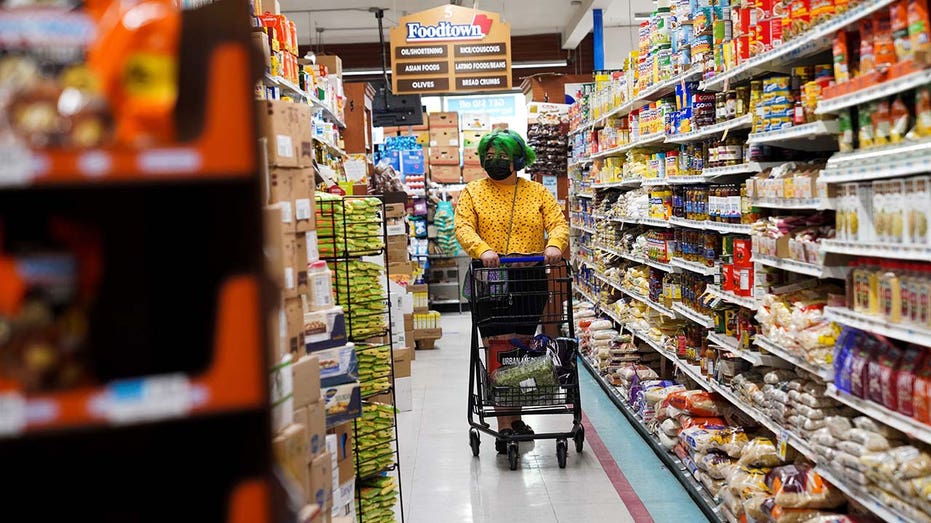US economy on cusp of stagflation, world's largest hedge fund warns
Stagflation could be on the horizon for US economy
The Fed is ‘sensitive’ to stagflation: Billionaire investor
The Carlyle Group co-founder David Rubenstein argues The Fed is attempting to avoid stagflation and not raising interest rates ‘too much’ amid soaring inflation.
The world's largest hedge fund is sounding the alarm over a possible return to 1970s-style "stagflation," as the Federal Reserve moves to tame sky-high inflation.
Bridgewater Associates co-Chief Investment Officer Bob Prince told Bloomberg TV this week that markets have not fully absorbed the shock of what's happening in the economy and investors are too optimistic about the path for inflation and interest rates.
WHAT IS STAGFLATION? WHY ECONOMISTS ARE WORRYING ABOUT A 1970S-STYLE CATASTROPHE
Asked whether he thinks the economy is headed for stagflation, Prince said: "We're on the cusp of it, yeah."

A customer shops at a store in New York, May 11, 2022. (Wang Ying/Xinhua via Getty Images / Getty Images)
Stagflation is the combination of economic stagnation and high inflation, characterized by soaring consumer prices as well as high unemployment. The phenomenon ravaged the U.S. economy in the 1970s and early 1980s, as spiking oil prices, rising unemployment and easy monetary policy pushed the consumer price index as high as 14.8% in 1980, forcing Fed policymakers to raise interest rates to nearly 20% that year.
Prince said the economy is already confronting "monetary inflation," as a result of massive injections of fiscal stimulus from the federal government and the Federal Reserve during the pandemic that were used to prop up businesses and U.S. households.
"The markets are under-discounting the inflation picture," he said during the World Economic Forum in Davos, Switzerland. "The sustainability, the self-reinforcing of the inflation is not discounted. The degree of tightening over time is not discounted."

Federal Reserve Chair Jerome Powell pauses during a news conference in Washington on Jan. 29, 2020. (AP Photo/Manuel Balce Ceneta, File / AP Newsroom)
Consumer prices jumped 8.3% in April on an annual basis, close to a 40-year high, and are expected to remain elevated in coming months. As a result, the Fed is embarking on its most aggressive course to tighten policy in decades, raising rates by a half-point earlier this month and signaling that similarly sized hikes are on the table at coming meetings.
There are growing fears that the Fed will trigger a recession because hiking interest rates tends to create higher rates on consumer and business loans, which slows the economy by forcing employers to cut back on spending. Bank of America, as well as Fannie Mae and Deutsche Bank, are among the Wall Street firms forecasting a downturn in the next two years.
Fed Chairman Jerome Powell has acknowledged there could be some "pain associated" with reducing inflation and curbing demand but pushed back against the notion of an impending recession, identifying the labor market and strong consumer spending as bright spots in the economy. Still, he has warned that a soft landing – the sweet spot between cooling demand without crushing it and triggering a recession – is not assured.
CLICK HERE TO READ MORE ON FOX BUSINESS
"It will be challenging, it won’t be easy. No one here thinks that it will be easy. Nonetheless, we think there are pathways... for us to get there," Powell said during a recent interview with Marketplace.





















